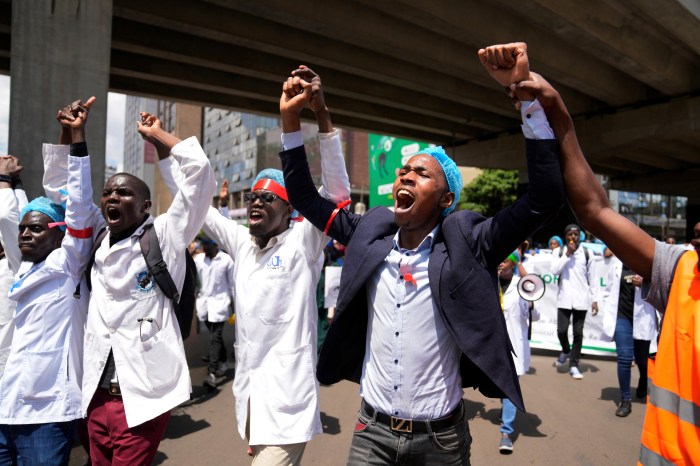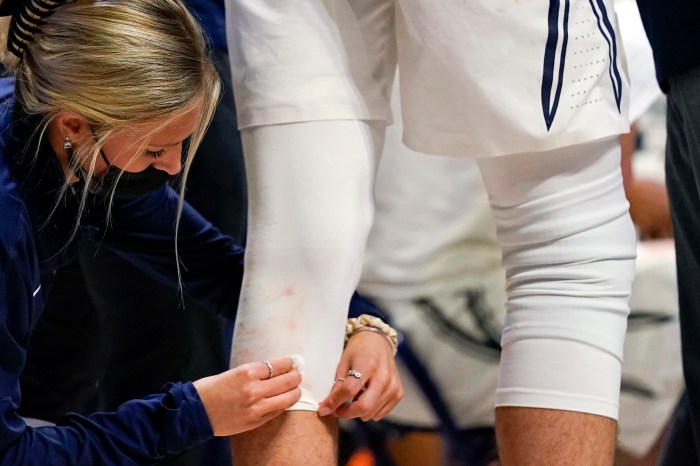(Reuters) – Health authorities in some European countries are facing resistance to AstraZeneca’s vaccine after side-effects led hospital staff and other frontline workers to call in sick, putting extra strain on already-stretched services.
DEATHS AND INFECTIONS * Eikon users, see COVID-19: MacroVitals https://apac1.apps.cp.thomsonreuters.com/cms/?navid=1592404098 for a case tracker and summary of news.
EUROPE
* Only 55% of Black people in England in their 70s had been vaccinated by last week compared with 86% of white people of that age, a study showed, as celebrities and officials encourage minority groups to accept the shot.
* Germany will most likely have to extend border controls with the Czech Republic and Austria beyond March 3 if outbreaks linked to a more contagious virus variant in those countries are not contained.
* A night-time curfew looks set to remain in place in the Netherlands as most parties in parliament voiced support for an emergency government bill which would circumvent a court order that the measure be dropped.
* Sweden extended a recommendation for public pools, indoor sport centres and museums to remain shut until March 7.
* Hungary has raised the prospect that citizens who have already had the coronavirus or been vaccinated against it could receive waivers from certain restrictions.
AMERICAS
* President Joe Biden’s fellow Democrats’ drive to hustle his $1.9 trillion coronavirus relief package through the U.S. Congress could leave some priorities of the party’s progressive wing, including a $15-per-hour minimum wage, in the dust.
ASIA-PACIFIC
* Indonesia’s capital Jakarta is threatening residents with fines of up to 5 million rupiah ($356.89) for refusing COVID-19 vaccines.
* Pakistan expects to receive 2.8 million doses of AstraZeneca’s vaccine on March 2, its first batch under the COVAX vaccine initiative, and will start giving doses to the over 60s.
* South Korea’s president visited a factory that can make 10 million syringes a month and plans to double capacity to prevent shortages as the nation rolls out its vaccination campaign next week.
* India will make COVID-19 molecular tests mandatory for people arriving directly or indirectly from Britain, South Africa and Brazil.
MIDDLE EAST AND AFRICA
* Africa’s total reported death toll from COVID-19 was approaching 100,000 on Thursday, a fraction of those reported on other continents but rising fast as a second wave of infections overwhelms hospitals.
* Turkey has vaccinated more than 5 million people with the first dose of a vaccine developed by China’s Sinovac Biotech Ltd as part of a campaign launched one month ago.
* Zimbabwe kicked-off its vaccination programme after receiving a donation of 200,000 doses of the Sinopharm vaccine from China earlier in the week.
* Saudi Arabia and Nigeria approved the use of AstraZeneca’s vaccine, while Namibia will roll it out despite efficacy concerns in neighbouring South Africa.
MEDICAL DEVELOPMENTS
* The second dose of Pfizer’s vaccine could be delayed in order to cover all priority groups as the first one is highly protective, two Canada-based researchers said.
* A laboratory study suggests the South African variant of the virus may reduce protective antibodies elicited by the Pfizer/BioNTech vaccine by two-thirds, and it is not clear if the shot will be effective against the mutation, the companies said on Wednesday.
* Russia plans to register CoviVac, its third COVID-19 vaccine, on Feb. 20, the Interfax news agency reported.
ECONOMIC IMPACT
* World stocks were battling to avoid a second day of declines as hints of rising inflation led by a one-year high in oil prices and the strongest copper prices in nearly a decade kept traders in check after a boisterous run up. [MKTS/GLOB]
(Compiled by Milla Nissi and Anita Kobylinska; Editing by Gareth Jones)



















